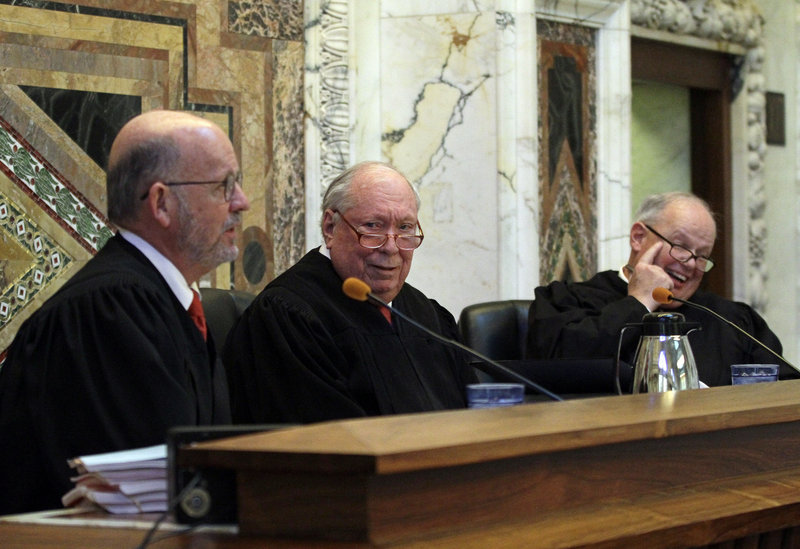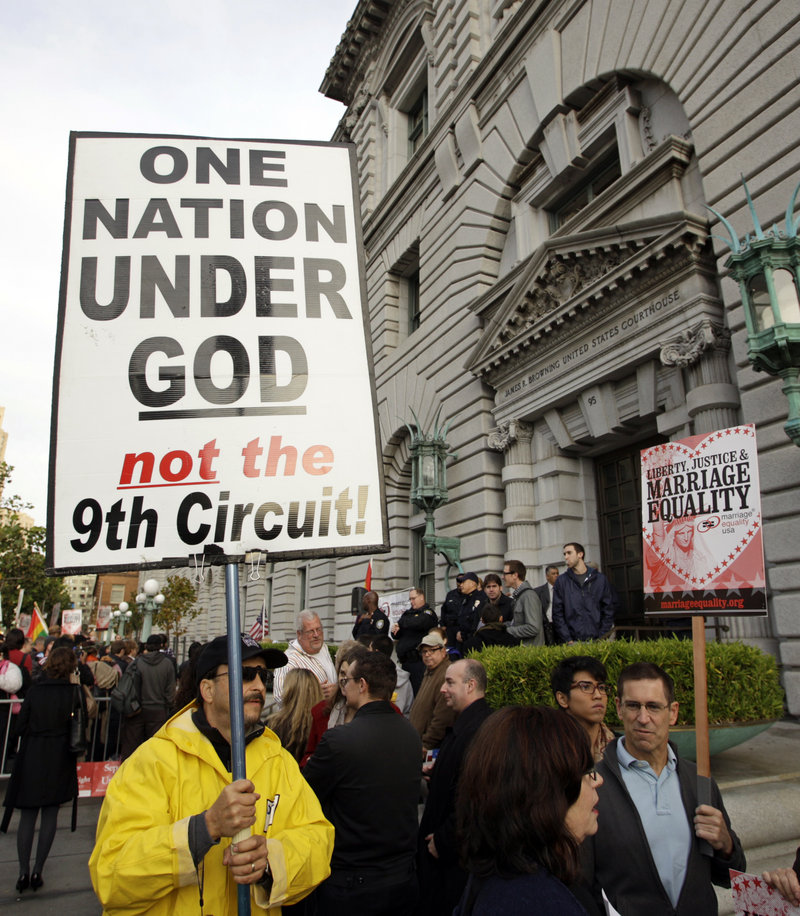LOS ANGELES — In a spirited discussion that spanned over two hours before adjourning, backers and opponents of California’s ban on gay marriage argued Monday over whether Proposition 8 violated the Constitution and whether gay-marriage foes had legal standing to make their case.
The hearing before the 9th Circuit Court of Appeals in San Francisco came after a federal judge ruled that Proposition 8 – the 2008 ballot measure that effectively banned same-sex marriage – was unconstitutional.
The judges dug into the issue of whether the Constitution permits the state to make distinctions between same-sex and opposite-sex marriages.
Charles Cooper, a lawyer who argued in favor of Proposition 8, said marriage exists for society to recognize relationships between men and women that can lead to children.
“When a relationship between a man and a woman becomes a sexual one, society has a vital interest,” Cooper said.
Judge Stephen Reinhart, one of a three-member panel of the 9th U.S. Circuit Court of Appeals hearing the case, appeared unconvinced.
“That sounds like a good argument for prohibiting divorce,” he said, dryly. “But how does it relate to having two males or two females marry each other and have children as they have in California? I don’t understand how that argument says we ought to prohibit that.”
Judge N. Randy Smith raised another issue: Under California law, same-sex couples have all the rights of marriage except the word “marriage.” Given that, he asked, how does Proposition 8 protect marriage?
Answered Cooper: “You are left with a word, but a word that is essentially the institution.”
The other major question was whether the anti-gay-marriage side had legal standing to appeal. If not, then Judge Vaughn Walker’s ruling would stand.
The judges grilled anti-Proposition 8 attorney David Boies on the question of who has standing to appeal Walker’s lower-court decision tossing the law.
Both California Gov. Arnold Schwarzenegger and state Attorney General Jerry Brown (now the governor-elect) declined to appeal Walker’s decision.
That prompted the judges to question who did have the right to appeal, an important point, they noted, given that a majority of California’s electorate voted in 2008 for Proposition 8.
“My problem is, in fact, the governor’s and the attorney general’s actions have essentially nullified the considerable efforts made on behalf of the initiative,” said Smith, the panel’s most conservative judge
He and other judges noted that neither Schwarzenegger nor Brown had the power to veto the proposition when voters approved it. But by declining to appeal the legal judgment, were they not effectively vetoing it?
Reinhardt raised the possibility of asking the California Supreme Court to answer this question of state law.
Send questions/comments to the editors.




Success. Please wait for the page to reload. If the page does not reload within 5 seconds, please refresh the page.
Enter your email and password to access comments.
Hi, to comment on stories you must . This profile is in addition to your subscription and website login.
Already have a commenting profile? .
Invalid username/password.
Please check your email to confirm and complete your registration.
Only subscribers are eligible to post comments. Please subscribe or login first for digital access. Here’s why.
Use the form below to reset your password. When you've submitted your account email, we will send an email with a reset code.